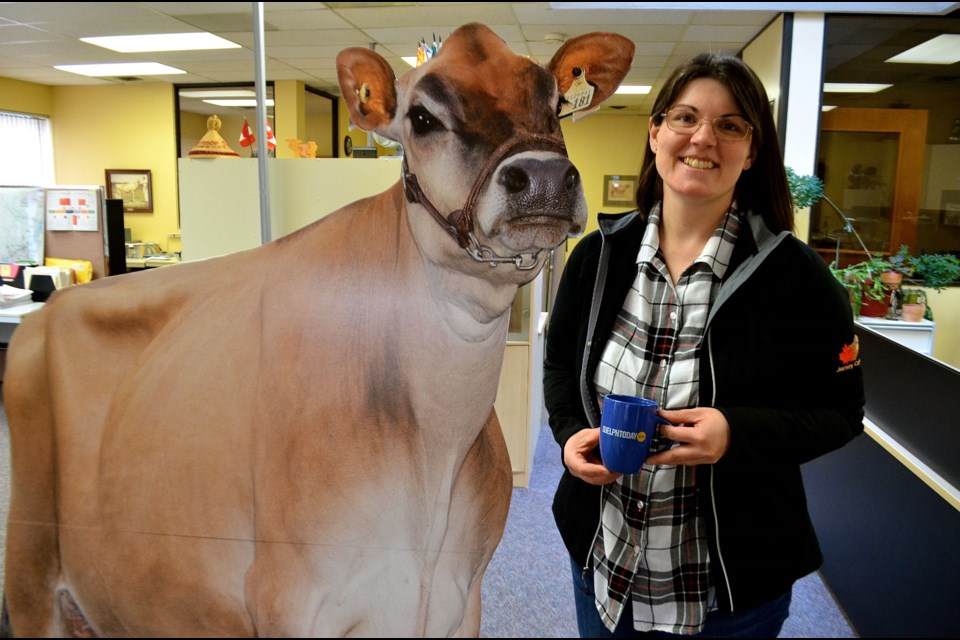Jersey cows are arguably the prettiest bovines in their field and life-long dairy farmer Kathryn Roxburgh will remind you they are pretty good milk producers as well.
“Jersey cow milk is high in fat and high in protein,” said Roxburgh. “It is more concentrated because there is less water in the milk. That makes Jersey milk appealing to processors who make cheese or butter and products like that.”
Jersey cows are light brown and smaller than their black and white cousins the Holsteins. Being smaller makes them cheaper to feed and house but that is only part of their appeal.
“A lot of people talk about their eyes,” said Roxburgh. “They are very pretty and very photogenic. I guess you could say that is what gives the breed a lot of publicity.”
They are the second most popular breed in Canada but represent a relatively small percentage of the market.
“About 93 per cent of the (dairy) cows in Canada are Holsteins,” said Roxburgh. “Four per cent are Jerseys and then there are five other dairy breeds that account for the other three per cent of the population.”
Roxburgh knew a thing or two about dairy cows before she became general manager for the non-profit, national breeders’ association, Jersey Canada.
“I was born in Brantford, Ontario and raised on a dairy farm south of Ayr,” she said. “I have three brothers and two of my brothers are still farming with my dad today.”
After graduating with a bachelor-of-science degree in biology and chemistry from Wilfrid Laurier University she landed a one-year contract with Jersey Canada as a registrar.
“Then from that one-year contract, a job opportunity came up with a company called Alta Genetics in Alberta,” she said. “I was out in Alberta for about seven years then made my way back full circle and now I am the general manager here.”
Jersey Canada formed in 1901 and operated out of Toronto until 1978 when they relocated to Waterloo Avenue in Guelph. In 1990 they moved the office to 350 Speedvale Ave W, Unit #9.
“The drive was always to be in Guelph because it was close to the university and the OMAFRA offices and there are quite a few of our industry partners here in Guelph,” said Roxburgh.”
Raising the public profile of Jersey cows is just part of Roxburgh’s job.
“We register every Jersey cow that is born in the country,” she said. “We keep track of pedigrees and performance information. We keep information on each animal and once she is milking we keep track of her production information and her classification information through data collected by our industry partners.”
That data reveals that Jersey cows are growing in popularity.
“In 2018 we registered 11,800 Jersey calves,” said Roxburgh. “That is significant because that’s the most we’ve registered since the mid ‘60s.”
She said the industry is highly regulated to guarantee the health of consumers and the ethical treatment of the cows.
“A dairy farmer makes his living by his cows.,” she said. “He has to look after his cows so the cows look after him.”
It’s a philosophy that guides Roxburgh and her husband Andrew who just started their own dairy farm near Paris where they live with their one-year-old son Alex.
“Andrew and I are only milking 23 head right now,” she said. “We are quite small but we hope to grow our dairy farm and to see it thrive and succeed – make sure all these sleepless nights were worth it.”